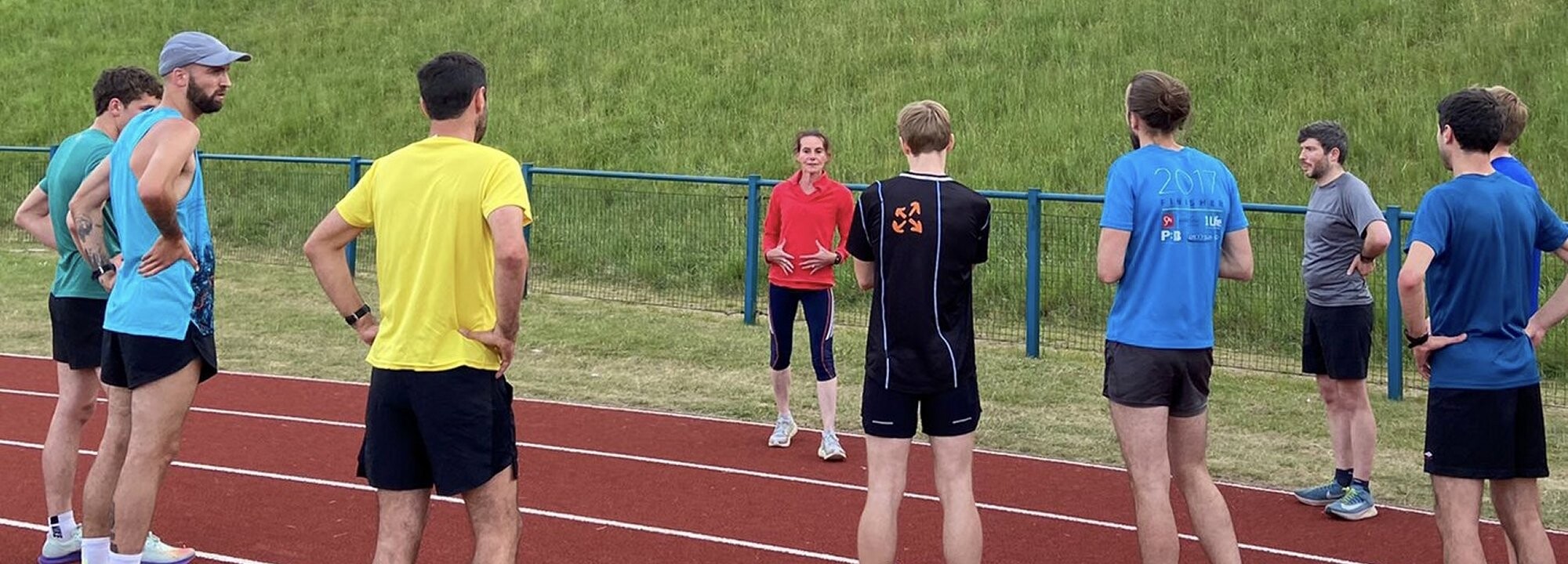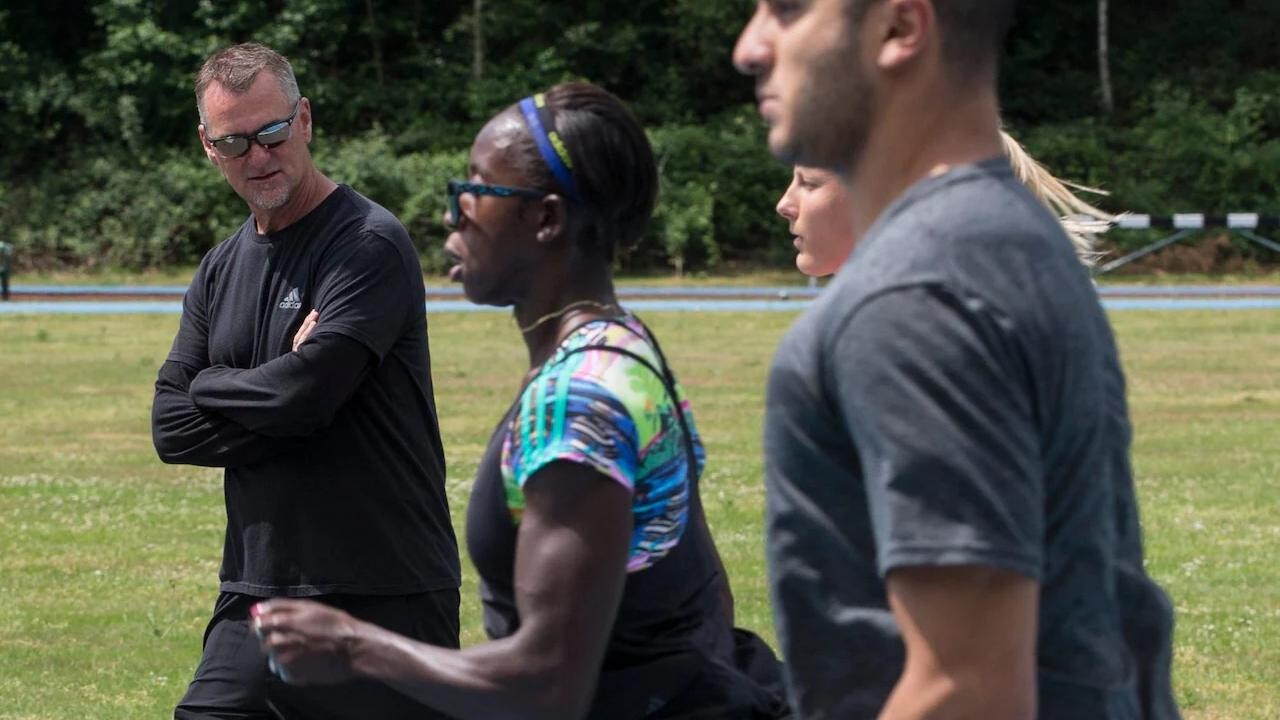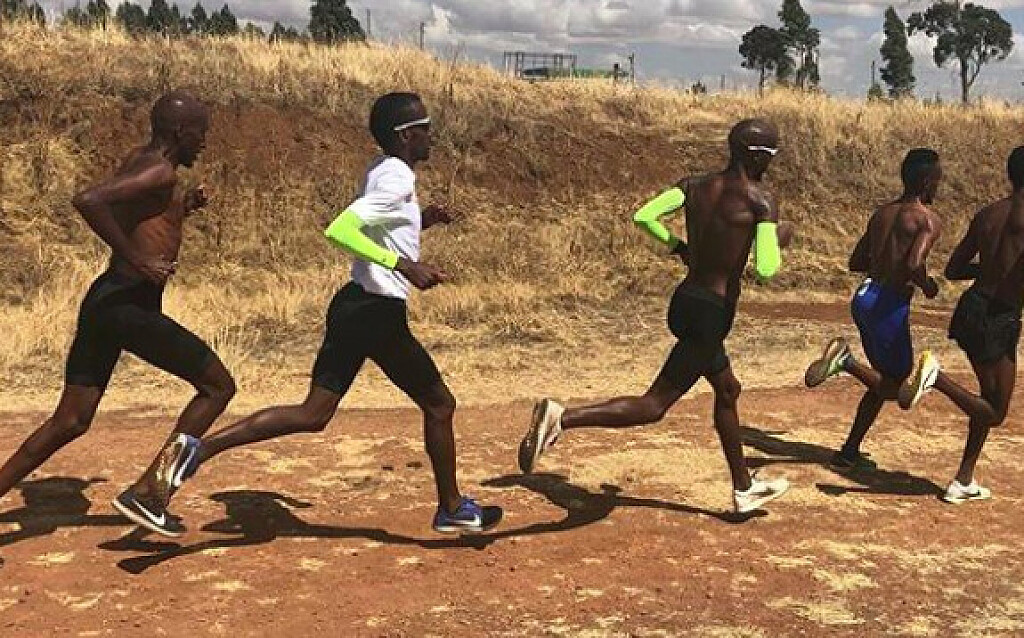Running News Daily
Running News Daily is edited by Bob Anderson. Send your news items to bob@mybestruns.com Advertising opportunities available. Train the Kenyan Way at KATA Kenya and Portugal owned and operated by Bob Anderson. Be sure to catch our movie A Long Run the movie KATA Running Camps and KATA Potato Farms - 31 now open in Kenya! https://kata.ke/
Index to Daily Posts · Sign Up For Updates · Run The World Feed
Eight Interval Training Workouts used by World Champions and Coaches
Interval training involves high-intensity repetitions followed by standing, walking or jogging recoveries. Interval training can be of varied length but are usually short and intensive accelerations.
This forms a crucial part of all distance runners – some throughout the year, others closer towards the lead-up to a race. Here are some examples of interval sessions used by elite athletes.
1. Craig Masback who represented the United States in international competitions on several occasions devised his own interval running workouts. He and his roommate ran 6 x 300m followed by a 2min rest. They would then progress to 4 x 1100m with 800m between each set at an aerobic pace where they ran the last 300m at a hard pace. Including warm-up and cool-down they would run a total of 10miles during their session.

2. Arturo Barrios, a five-time world record holder and Olympic Games runner, had a favorite interval running workout: 10 x 1000m on the track @ slightly faster than 5km race pace, with a slow jog recovery as rest. Barrios used this workout every other week in the lead up to a race with his last session occurring 2 weeks before racing.
3. Silvio Guerra, gold medalist at the South American Games and Olympic Games runner, found that his most important track workout was 8 x 1km with 2mins to 2:30mins recovery depending on weekly workload and time of the season. He recommends this workout as it provides a runner with speed and endurance. He used a 3-mile warm-up that ended with a quick pace followed by 15mins of stretching and striding (10 strides).

4. Bill Dellinger, a bronze medalist at the 1964 Olympic Games for the 5000m, used advanced interval training to his advantage. He completed 3 miles of alternating 30s and 40s 200m runs with no recovery. The workout finished when he could not keep up with the pace anymore. As a coach he uses the 40-30 with his athletes almost 3 times during winter training with some of his best athletes going for 18 laps continuously. He also used the 800-300, which consisted of running 800m at a runner’s 5km goal pace with a 400m recovery, followed by 300m at mile race pace with a 200m recovery in 40s. The cycle repeated until the athlete could not keep up with the pace anymore.
5. Libbie Hickman, World Champion and Olympic Games runner for the US, used a straightforward 8 x 300m in 48s with a 200m recovery phase. She tries to be in a fairly recovered condition before the start of every 300m also making this her toughest workout. Hickman feels that runners need to have a strong base before trying a workout like this.
6. Marc Davis, a former US record holder for 2 miles, used a fast ladder style workout for his interval training sessions. He ran a hard mile, followed by a 1200m, 800m and 400m. The recovery between each was half the distance of each segment. He ran his workouts close to a 4-minute mile pace and called it the Alberto Salazar special.
7. Adam Goucher, a US national champion runner, used to run 10 x 500m on the track with a 100m recovery between each repeat. Goucher ran his 500m between 1 minute 16 seconds and 1 minute 18 seconds. He calls it ‘Coach Wetmore’s Secret’ and feels that it provides great preparation for a 5km. Goucher recommends bringing the training down to your level by providing adequate recovery so that you are able to finish the session. As you improve and get fitter reduce the recovery time to suit your needs.
8. Rich Kenah, an elite runner who represented the US, uses a 4 x 400m with a 4min jog recovery when he approaches his racing season. His wife Cheri uses a 3 x 1mile workout running them in 4:45. To them, these sessions are key indicators for their current state ‘a great barometer of our fitness’. For example, if Rich can run all 4 sets of 400m in 52.0s, he knows that he is in good shape for a quality 800m race.
The workouts are preceded by a 1-hour warm-up including jogging, stretching, drills and striding. This particular session usually comes after a month of ‘fairly high volume’ during the season.
Conclusion
Interval training is a form of workout that is used by runners and coaches across the world. They help improve your speed and endurance while simulating situations and pain that you are likely to face during your races. There are several ways of doing interval training across a lot of surfaces, therefore there is no one right way to complete this kind of a session. Find what suits your current level of fitness and race distance and to create an interval session for your needs.
by Chelsea Ho
Login to leave a comment




